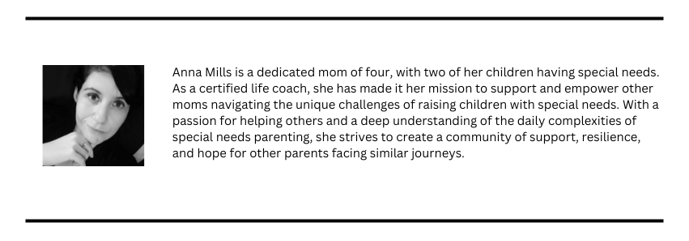
Should I Homeschool My Medically Complex Child? Pros and Cons
How I came to the decision to homeschool my medically complex child.
INFORMATIVEPERSONAL BLOG
Anna Mills
2/18/20256 min read
As the parent of a medically complex child, I’ve learned that navigating the public school system in my state is not easy. I’ve had to educate myself on laws, guidelines, how to find advocates, and so much more. Despite the challenges, I’ve stuck with it because my son’s doctors strongly recommended that he stay in school because it encouraged him to get out of bed and continue interacting with his peers. I agreed, knowing it would be best for his development.
However, even with doctors recommending 504 accommodations, my son continued to fall behind. There are many reasons for this, but the main one was his frequent school absences. He has a lot of doctor appointments and therapy sessions, but he also experiences severe pain, fatigue, and tachycardia. Although the school district eventually allowed for his excessive absences, they didn’t offer any way for him to keep up with his classmates. He wasn’t allowed to bring his chromebook home, and it was hard to get worksheets or materials to work on at home.
At one point, I even had to deal with truancy letters from the school district, which felt like borderline harassment. I was doing my best, but sometimes I couldn’t produce a doctor’s note every time he wasn’t feeling well. If I took him to the doctor every time he had symptoms, we’d practically live at the hospital.
The time has come for me to re-evaluate our options. My son needs the flexibility that public school simply couldn’t provide. So, I decided to make a list of pros and cons about homeschooling him. I had already homeschooled for a semester last year after receiving truancy letters, and now I needed to revisit that decision.
Here’s the list of pros and cons I compiled:
Homeschooling:
Pros:
Flexibility in Schedule:
Homeschooling offers the flexibility to adjust the daily schedule to accommodate medical appointments, rest, or days when the child might not be feeling well. If a child has chronic health conditions, like my son (e.g., autoimmune disorders, fatigue), parents can adjust lesson times or even take breaks when needed.
Individualized Learning:
With homeschooling, the learning pace can be adapted to the child's health status. For instance, on days when a child is not feeling well, lessons can be shortened or adapted to lighter activities that don’t overwhelm them.
Parents can modify the learning environment to make it as comfortable as possible for the child, such as allowing them to rest or work from their bed if necessary.
Reduced Exposure to Illnesses:
Homeschooling reduces the child’s exposure to illness that they might encounter in a public school setting, which can be a big advantage for children with compromised immune systems or conditions that make them more susceptible to infections (e.g., asthma, allergies).
Lower Stress:
Homeschooling offers a less rigid structure, which can help reduce stress or anxiety in children with conditions like chronic pain or mental health struggles. The ability to work in a calm, quiet environment can be very beneficial.
This was a big deciding factor for me. My son expressed that he was having trouble keeping up with his peers in the hallway and he was embarrassed he has to sit out certain physical education activities.
Customized Support:
Parents can provide more hands-on support with managing any health-related needs (e.g., administering medication, ensuring the child has time for physical therapy or relaxation). This personal attention is especially important for children with health conditions that require special care throughout the day.
Cons:
Time and Energy Demands on Parents:
Homeschooling requires a significant time commitment from parents. For parents of children with health issues, this can be especially taxing if the child requires more attention or care throughout the day. Balancing medical needs with educational planning may lead to burnout.
Limited Social Interaction:
A child with health issues may struggle with isolation if homeschooling limits social opportunities. While co-ops, online programs, and extracurriculars can provide some socialization, homeschooling can still reduce opportunities for the child to interact regularly with peers, which is important for their emotional and social development.
This one was not a big factor for my son. He has two brothers and one baby sister. To add to that we are blessed my son’s best friend lives less than a block away. We also plan to use our local public library for kid friendly events and socialization.
Potential for Overprotection:
In some cases, parents may become overprotective, limiting their child’s exposure to new experiences or the chance to build resilience through interacting with others. This can create challenges in preparing the child for future social and academic environments.
Need for Specialized Resources:
Homeschooling may not always provide the same specialized resources that public schools can offer. For children with health issues that require physical therapy, special education services, or mental health support, parents must seek out additional resources, which can be costly and time-consuming.
Our local school district took away my son’s therapy, and even after a battle they continued to deny my son’s need for an IEP. This is not always the case, but it happens. My son doesn’t utilize any special services through our current school district therefore it was not a factor in our decision making.
Public Schooling
Pros:
Access to Special Education Services:
Public schools are required to provide accommodations and specialized resources for students with health-related needs. Children with chronic health conditions (such as diabetes, asthma, or ADHD) are often eligible for Individualized Education Plans (IEPs) or 504 plans, which can help ensure they receive the support they need.
For children with significant health issues, public schools have access to specialized teachers, physical therapists, and counselors, which can be crucial for managing both educational and health needs.
Socialization and Emotional Support:
Public schools provide a consistent social environment where children can interact with peers, build friendships, and develop social skills. This can be especially important for children with health conditions, as socializing can boost their emotional well-being and sense of belonging.
Teachers and school counselors can be a source of emotional support, helping students navigate both academic challenges and health-related issues, such as stress or anxiety stemming from their condition.
Support for Mental Health:
Public schools often have access to counselors and mental health professionals who can provide ongoing support for children with health conditions that impact their emotional well-being. This can be an essential resource for children struggling with the emotional aspects of chronic illness, hospital visits, or physical limitations.
Structured Environment:
A structured schedule can be beneficial for children who thrive on routine. For children with health issues that require a consistent daily pattern (e.g., taking medications at certain times), the predictability of a public school schedule can offer stability and reduce stress.
Extra-Curricular Activities for Physical and Emotional Well-being:
Participation in school sports, art, and other activities may provide a child with a sense of achievement and normalcy, which is particularly helpful for children managing chronic health conditions. Many public schools also offer adapted physical education programs for students with health issues.
Cons:
Exposure to Illness:
Public schools can expose children to illnesses, especially during flu season, which could be particularly harmful for children with immune system issues, respiratory conditions, or other health concerns.
Large Class Sizes and Limited Individual Attention:
Children with health issues may not receive the personalized attention they need due to large class sizes, which can make it difficult for teachers to accommodate their specific learning or health-related needs.
Teachers may not always be equipped to address medical needs or offer immediate assistance during a health crisis, which could be concerning for parents of children with chronic conditions.
Rigid Schedules:
The structured environment of public schools may not always be conducive to children who need flexibility due to health-related issues. For example, a child with chronic fatigue or medical treatments may struggle to keep up with a traditional schedule, missing out on critical rest or care time.
Stress and Pressure:
School environments can be stressful, particularly for children who have health conditions. The demands of tests, homework, and peer pressure may exacerbate symptoms of anxiety, fatigue, or other health issues. Additionally, a child with a chronic condition may feel different from their peers or face bullying due to their health challenges.
Limited Control Over Environment:
While schools must accommodate health needs, parents may have less control over the learning environment. For children with sensory issues, allergies, or other health concerns, the environment (e.g., fluorescent lights, allergens, noise levels) may not always be conducive to their well-being.
Both homeschooling and public schooling can be viable options for children with health issues, but the right choice depends on the child’s specific health needs, the family’s ability to provide support, and the resources available in each setting.
Homeschooling offers flexibility, individualized attention, and a low-stress environment, which can be ideal for children with certain chronic health conditions or those who need more one-on-one care. However, it may present challenges in terms of socialization, access to specialized resources, and the time commitment required from parents.
Public schooling can provide access to specialized services, socialization, and extracurricular activities that can be beneficial for children’s emotional and physical well-being. However, it can expose children to illnesses, stress, and less flexibility, which may be difficult for some children with health concerns.
Ultimately, the decision should be based on the child’s health needs, the family’s resources, and how each educational setting can best support the child’s physical, emotional, and academic development.
We personally have chosen to homeschool primarily due to needing flexibility to work with his good days, bad days, and hospital days.
I am currently exploring a variety of programs to use in the fall, but since we are currently in the middle of the year we will be using a flexible online program and supplement with workbooks and learning resources. I will post a review of what we have used in the past and link it here soon.

